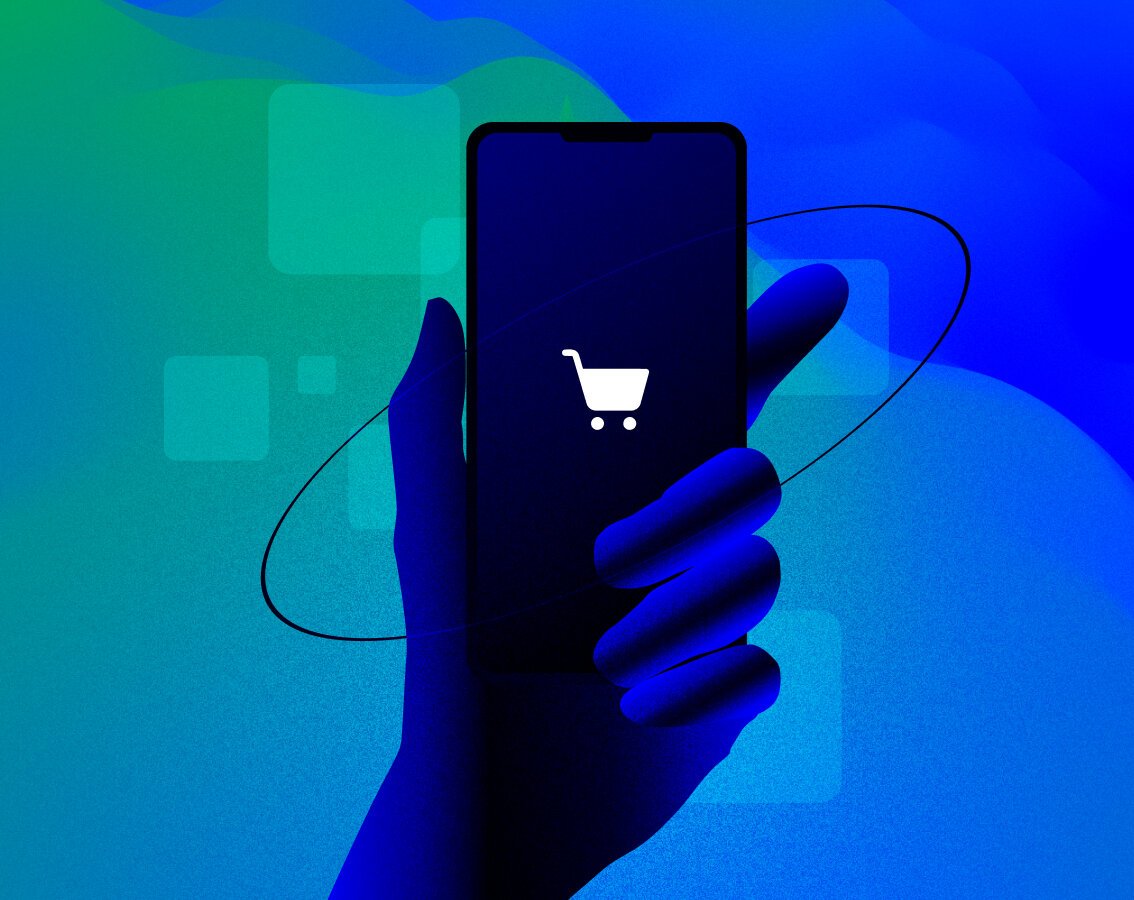blog
Cost of Developing an App in Singapore
By Siddhant Chaudhary App development June 8, 2023

How much does it cost to build an app in Singapore?
One of the most common things we get asked here at Buuuk by our potential clients is “How much will it cost for you to design us an app?”. Unfortunately, there is no easy answer to this question. Mobile app development, whether iOS app development or Android app development, is a complex beast, and there are many factors that can influence the price and the time it will take to complete your project.
Estimating App Development Cost in Singapore
It's essential to understand the various cost and time factors involved. Below is an breakdown to estimate app development cost in Singapore:
- Developing a simple app is estimated to cost between SGD 22,000 and SGD 45,000, with a development timeframe of 2 to 4 months.
- For a medium complexity app, you might be looking at a budget ranging from SGD 43,000 to SGD 65,000, and a development period of 4 to 6 months.
- Embarking on a complex app development project will likely require an investment of SGD 100,000 or more, with a substantial development timeline of 9 months or longer.
- If you’re considering hiring a developer, the annual salary for an app developer in Singapore, considering the conversion rates, could be around SGD 140,000.
- Alternatively, if you opt to pay your developer by the hour, you might be looking at an hourly rate of approximately SGD 70.
Some app development companies in Singapore might only charge a few thousand dollars, while others could quote amounts of SGD 500,000 or even more. It really depends on what you want or can manage as a Minimum Viable Product (MVP). In reality, the price could range from around SGD 5000 all the way up to several million depending on the needs of company.
With the mobile app industry experiencing a Compound Annual Growth Rate (CAGR) of 9.7% and the number of hours we spend using apps per month also on the rise, it’s important to recognize that more and more businesses need to harness the power of mobile applications. That way, they can reach all their customers, whether they’re a start-up or a multinational conglomerate looking to expand into a new target market.
In this post, we’ll be discussing the cost of developing an app in Singapore, taking into account a number of different considerations.
Factors Influencing Cost of App Development in Singapore
In addition to the time required to build the app, there are a number of factors that might affect how much it costs to develop an app in Singapore. When evaluating the cost of designing an app, it's necessary to take these elements into account. Here are some important elements that affect how much it costs to develop an app:
App Complexity
Complexity is a key factor affecting app development costs, affecting features, functionality, and system integration. Sophisticated software requires more time and resources, leading to higher costs.
Examples:
Simple App: A basic calculator app with minimal features and straightforward functionality would be considered simple. They do not require advanced features, API integrations or backend development.
Moderate App: An e-commerce app with user registration, product listings, shopping cart functionality, and payment integration would fall into the moderate complexity category.
Complex App: A social media app with advanced features like user profiles, messaging, push notifications, real-time updates, and content sharing would be considered complex.
Design and User Interface (UI)/User Experience (UX)
A well-designed app enhances the user experience, increasing satisfaction and retention. However, creating high-quality UI/UX designs requires expertise and effort, impacting development costs. Balancing design quality and cost can be achieved by establishing clear requirements, collaborating with designers, and leveraging design frameworks and templates.
Platform Selection (iOS, Android, or Both)
Developers must consider the target audience and market share of each platform when selecting a platform. iOS and Android are dominant, with development costs varying due to differences in programming languages, tools, and processes.
iOS app development is slightly more expensive due to Apple's strict review process and specialized skills, while Android apps require more extensive testing due to device fragmentation and operating system versions.
Businesses can optimize costs by using cross-platform development frameworks like React Native or Flutter for iOS and Android apps, reducing development time and costs.
Features and Functionalities
App development costs are significantly impacted by the features and functionalities required. Standard features like user authentication, data storage, push notifications, and in-app purchases are standard.
Advanced features like real-time chat, augmented reality, location-based services, and complex algorithms require more time and expertise, leading to higher costs. Prioritizing essential features and incorporating non-essential features in later iterations helps manage costs.
Integrating third-party services or APIs can add complexity and cost, and customizations may require additional development effort, resulting in increased expenses.
Development Approach (Native, Hybrid, or Cross-Platform)
The development approach for an app project impacts its cost. There are three primary approaches:
Native Development: Native development involves building separate apps for each platform using platform-specific languages, providing better performance and access to features.
Hybrid Development: Hybrid frameworks like Ionic or Cordova allow developers to create web-based apps and package them as native apps, offering code reusability across platforms but reducing performance and limiting capabilities.
Cross-Platform Development: Cross-platform frameworks like React Native or Flutter allow developers to build apps on multiple platforms with a single codebase, reducing development time and costs. However, cross-platform apps may have performance trade-offs and limitations in accessing platform-specific features.
Standing Out From the Crowd
When choosing a company to develop your app, you also need to consider how it will stand out from the crowd. Singaporeans, on average, have 115 apps installed on their mobile devices, surpassing the typical smartphone user, who generally has 60-90 apps installed. This indicates that Singapore is at the forefront of app usage.
This means that business owners need to focus on not just getting clients through the door (i.e., ensuring their developers create something people want to download in the first place), but they also need to keep users engaged and, more importantly, keep them coming back. This is where UX/UI designers come into play. They, of course, add to the cost but can ensure your users will actually enjoy using your app.
Is Low Cost App Development Worth It?
You ought to consider what the real cost of this could be to your business.
Hiring a low-cost developer, whether an independent contractor or a large company, can have negative consequences. Factors such as outsourcing to countries with lower salaries and paying staff below market rates can negatively impact the end product.
Contractors with multiple clients may struggle with deadlines, communication may be difficult due to language barriers or timezones. Inexperienced developers, especially those working solo, may lead to issues if they encounter unfamiliar issues.
Low-cost quotes may not include everything needed, such as a SGD 5,000 package that requires optional extras, leading to a higher cost.
Additionally, ready-made app modules may be restrictive and pose problems with integration with current or future systems. It is essential to avoid these cheap gimmicks and opt for the real deal.
Expensive Doesn’t Necessarily Mean You’re Getting the Best
Despite the points we mentioned above, it’s worth noting that you should also be wary of quotes that are overpriced. Just because you’re quoted SGD 400,000 for an app doesn’t mean the people behind it are the best in the business. No matter what you’re paying, choose a company that has a solid work history and reputable reviews.
And regardless of which company you choose, you should ask for a price breakdown to make sure you’re getting good value for what you’re paying. Don’t get carried away by an impressive portfolio with big names, because that doesn’t guarantee they’re the best. Make sure you get all of the details you need, including:
How many platforms will be included
Which web services will be used and the cost breakdown of all services which will be used in the project
What is their design process? How long will it take? What will be the outcome of this phase?
The experience of the team members that will be working on your app
What roles will these team members be playing in the development of your app?
What is the cost of change requests?
How thorough is the testing process? What kind of tests are they planning to do?
Is there a warranty period?
What about maintenance costs? Are they included?
What about updates and version control? How will that work for your app?
And last but not least, don’t forget to ask for company references of their work and clients.
Each of the above considerations will allow you to determine how much you’re really going to get for the price they're quoting you. Any good developer will be able to give you a thorough answer to each of the above questions. If not, choose somewhere else to develop your app.
Questions to Ask Yourself Before Hiring an App Developer
To achieve a successful and cost-effective project, it's crucial to ask the right questions while thinking about designing an app. Here are some important inquiries to think about:
1. What is the objective of developing the app?
The scope, features, and general direction of the project will be determined in part by understanding the goals and objectives of the app.
2. Who is the target audience for the app?
It's important to have a clear understanding of the user demographics and preferences, as identifying the target audience can influence design choices, the user experience, and feature prioritization.
3. What platforms should the app be developed for?
It is crucial to know which platform the app is being developed for, (iOS, Android, or both platforms), as this impacts the cost, development approach, and reach of the app.
4. What features and functionalities are essential for the app?
Understanding the core features and functionalities required for the app can help define the minimum viable product (MVP) and end up prioritizing development efforts.
5. Are there any specific integrations or third-party services required?
Does your app need to integrate with external services or APIs? (such as payment gateways or social media platforms) can surely impact development complexity and overall costs.
6. What is the desired timeline for app development?
Having a clear sense of timeline is important when it comes to setting expectations and determining whether they align with your available resources and budget.
7. What is the budget for app development?
Learning about the budget constraints will help in figuring out the real scope of your project. It also helps making decisions regarding design, features, and development approach.
8. Have similar apps been developed for the market?
You need the added insights into the competition to help refine the concept of the app, which comes from researching existing apps in the market with similar features and targeting a similar audience.
9. Have you considered long-term maintenance and updates for the app?
Did you factor in ongoing maintenance? bug fixes? Consider all the updates beyond the initial development phase to ensure the app remains functional and relevant.
10. Have you chosen the right development partner?
Selecting the right developer team with adequate experience, expertise, and a proven track record is fundamental for a successful app development project.
By asking these questions, you can gather essential information and make informed decisions about your app development project in Singapore or any other location.
Conclusion
In conclusion, developing an app in Singapore requires careful consideration of cost factors to plan and budget effectively. Key takeaways include considering location, cost, and factors affecting app development.
App complexity significantly impacts cost estimation. Simple apps are less expensive, while complex apps require more resources and expertise.
Design and UX are crucial for user engagement, and balancing quality and cost can be achieved through clear requirements and collaboration with designers.
Platform selection, including iOS and Android, impacts development costs. Cross-platform frameworks optimize costs for multiple platforms.
Prioritizing essential features and considering customization and third-party integrations helps manage costs effectively.
Choosing the right development approach depends on project requirements and budget, with pros and cons in cost and efficiency.
Begin your app development journey with a well-informed budgeting strategy, considering business objectives, target audience, desired features, and available resources. Collaborate with experienced developers or companies to obtain accurate cost estimates and make informed decisions. App development is an iterative process, so set realistic expectations and start with a clear understanding of cost factors to ensure a successful and cost-effective project. Good Luck!



